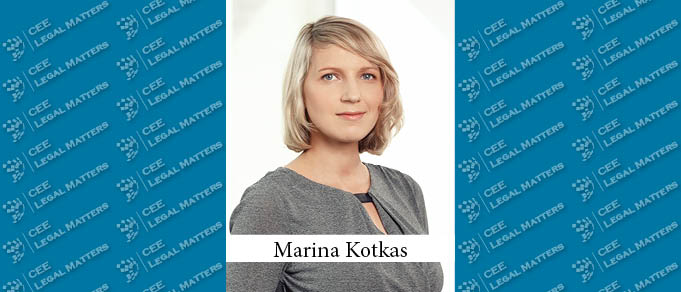A slowdown in capital market transactions and some M&A activities, a governmental crisis and tensions with the Russian-speaking population, and rising energy prices and inflation were all hallmarks of Estonia’s past six months. While the geopolitical situation and economic situation remain tough, direct investments in Estonia seem to be getting back on track, across a number of sectors, according to Cobalt Partner Marina Kotkas.
"Estonia has been in a stalemate between May and the middle of July, following the collapse of the government," Kotkas begins. "Finally, in mid-July, a new three-party coalition government was formed, and some stability regained, with the stated priorities of the new government including providing continuing support to Ukraine against the Russian invasion, combating inflation, and dealing with the skyrocketing energy prices and security concerns," she says. "There were also tensions with the Russian-speaking population in the easternmost city, over the government’s decision to remove Soviet-era war monuments," she reports.
To combat the ongoing energy crisis, Kotkas says the government has introduced amendments to the electricity market act, "seeking to form new universal services which would include a regulated price set by the Estonian competition authority, with the aim to bring prices down." Also, a "range of measures was set out to boost energy investments and accelerate the transition to renewable energy sources," she reports.
As for the deal market, Kotkas reports a slowdown in the levels of direct investments on account of "the war in Ukraine and a general decline in global M&A markets." Regardless of that, however, she reports that the "deal flow is quite strong" and that transactions are happening across all sectors. "Investors and businesses are hopeful that there will be further stability in the next six months, but it depends on global market moves," Kotkas says.
Estonia has the highest number of tech startups per capita in Europe. "These startups have been performing quite well and have been attracting numerous investment rounds; however, the valuations have been under increasing pressure," Kotkas says. "Still, the deals are happening, and with ten Estonian unicorn success stories already, the ability of local startups to scale globally is being emphasized even more."
Given such strong levels of tech sector development, it comes as no surprise that "crypto regulations and crowdfunding regulations have reached the Estonian regulator, which is seeking to provide a common framework for the two," Kotkas reports. "This has been in the works for many months and has received a lot of attention and comments from market participants, but there is still a lot of work to be done before this regulation can be implemented properly," she explains.
Turning to the status of the capital markets, Kotkas says that while they "had been booming for three of four years, both in equity and debt transactions," the events in Ukraine have changed that significantly. "We’ve been experiencing low activity levels and much investor caution for six months already, but things are cautiously looking to turn around."
Finally, Kotkas reports that in anticipation of the key interest rate hikes by the ECB that were finally decided last month, the interest rates for corporate and consumer lending also started rising a few months ago. "The availability of financing remains quite good, despite it being more expensive," she says. "Even real estate projects, which have been a bit endangered on account of rising construction materials costs, have been receiving financing." Kotkas feels the continuing availability of loan financing is very important, "despite it being more expensive."
